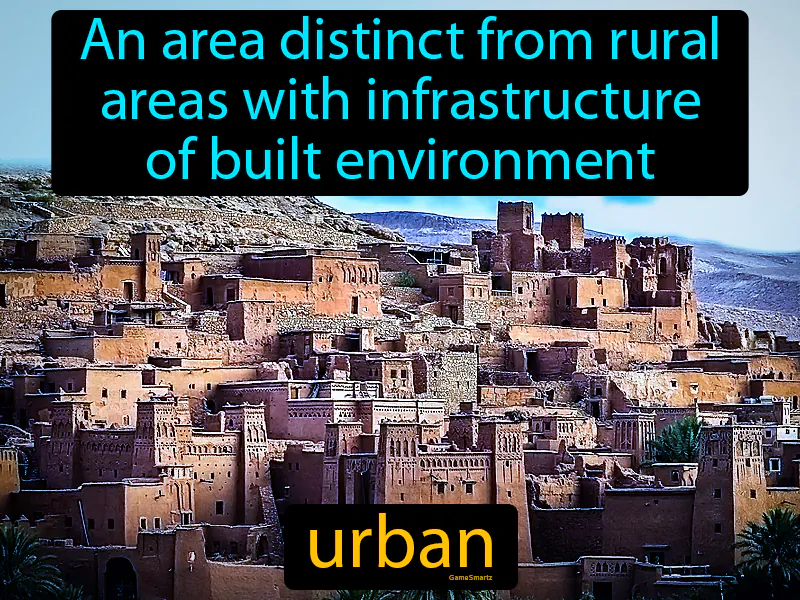Urban
Urban: Easy to understand
In history, the concept of "urban" became important when early farmers began to settle and create communities that eventually grew into cities. This development allowed for more structured societies with specialized jobs, trade, and cultural advancements, responding to the need for organized living and increased agricultural productivity. Urban areas became centers of innovation, governance, and economic activity, attracting people for opportunities and a better quality of life. Today, urban areas continue to be vital for access to jobs, education, and healthcare, impacting daily life significantly. For example, someone living in a city might have better access to public transportation and diverse job markets than someone in a rural area, highlighting the ongoing importance of urban environments.

Practice Version

Urban: An area distinct from rural areas with infrastructure of built environment. Urban. Urban refers to regions characterized by high population density and vast human-built features, like cities, which have been important centers of trade and culture throughout history.